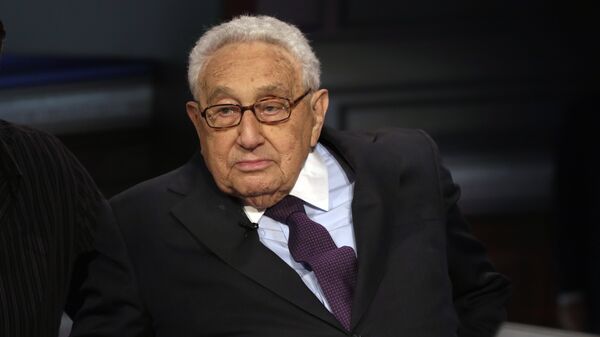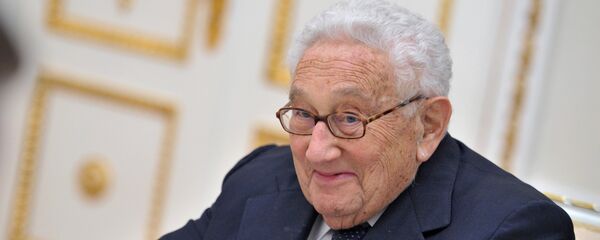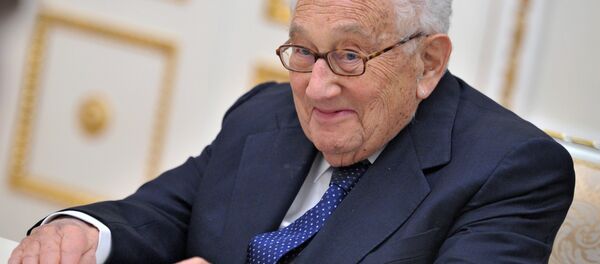"Kissinger can bring to the table the simple principle, too long considered heretical, that great states, like Russia, have legitimate security interests that need to be taken into account. The same must be recognized regarding China," Jatras said.
Although he is now 93 years old, Kissinger retains a clear understanding of the value of good relations between Washington and Moscow and has not succumbed to the anti-Russian sentiments held by many in the Washington establishment, Jatras pointed out.
"Even at his advanced age, Kissinger is capable of articulating a soberness too often lacking in our needless and gratuitous antagonism toward Russia and [Russian President] Vladimir Putin personally," he noted.
Kissinger’s balanced realism was a preferable influence on US policymaking than the unrelenting anti-Russian prejudice that permeated most of the Washington think tanks, Jatras suggested.
"Given the domination of the bipartisan foreign policy establishment by supposed experts whose antipathy toward Russia is uncompromising and obsessive to the point of self-destructive irrationality, Mr. Trump could do far, far worse than Dr. Kissinger," Jatras said.
Almost 40 years since he left office as US secretary of state, Kissinger’s reputation remained that of a hard-headed, even cold-blooded realist, Jatras remarked.
"Kissinger’s advice to Trump can expected to be, in a word, geopolitical, as opposed to the usual ‘values’-based drivel peddled by the ‘expert’ community, where every issue consists of one Munich moment after another," he said.
However, Jatras recalled that that the supposedly "principled" foreign policy followed by current President Barack Obama had generated many tragedies of mass human suffering caused by civil wars and chaos around the world.
Trump, following Kissinger’s advice, had an opportunity to try and help negotiate ends at last to several of these conflicts, Jatras explained.
"High on the list must be wrapping up the Syrian disaster — largely the product of bipartisan ideologues’ fantasies about democracy in the Middle East, somehow considered compatible with arming Islamic terrorists — and the festering sore of Ukraine," Jatras said.
Trump could also apply Kissinger’s principles of realism to end the continuing eastward expansion of NATO, he maintained.
Broader strategic cooperation between the United States and Russia against Islamist extremism was an achievable goal too, Jatras suggested.
"Finally, given Trump’s clear gut-level commitment to warming ties with Moscow and partnering with Russia against radical Islamic terrorism, the contours of a ‘grand bargain’ should become discernable," he added.
Kissinger is smart enough to know that, Jatras concluded.



